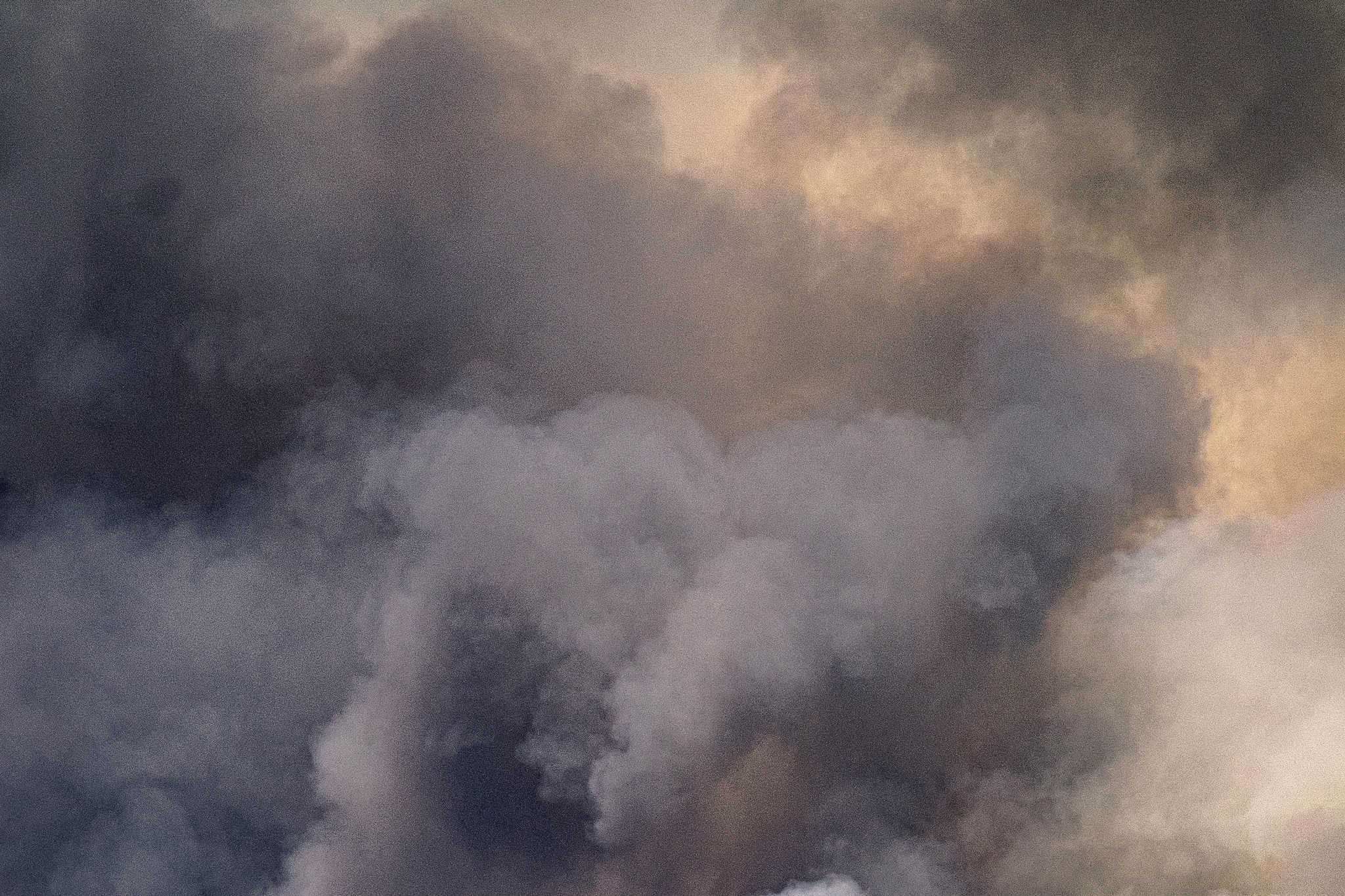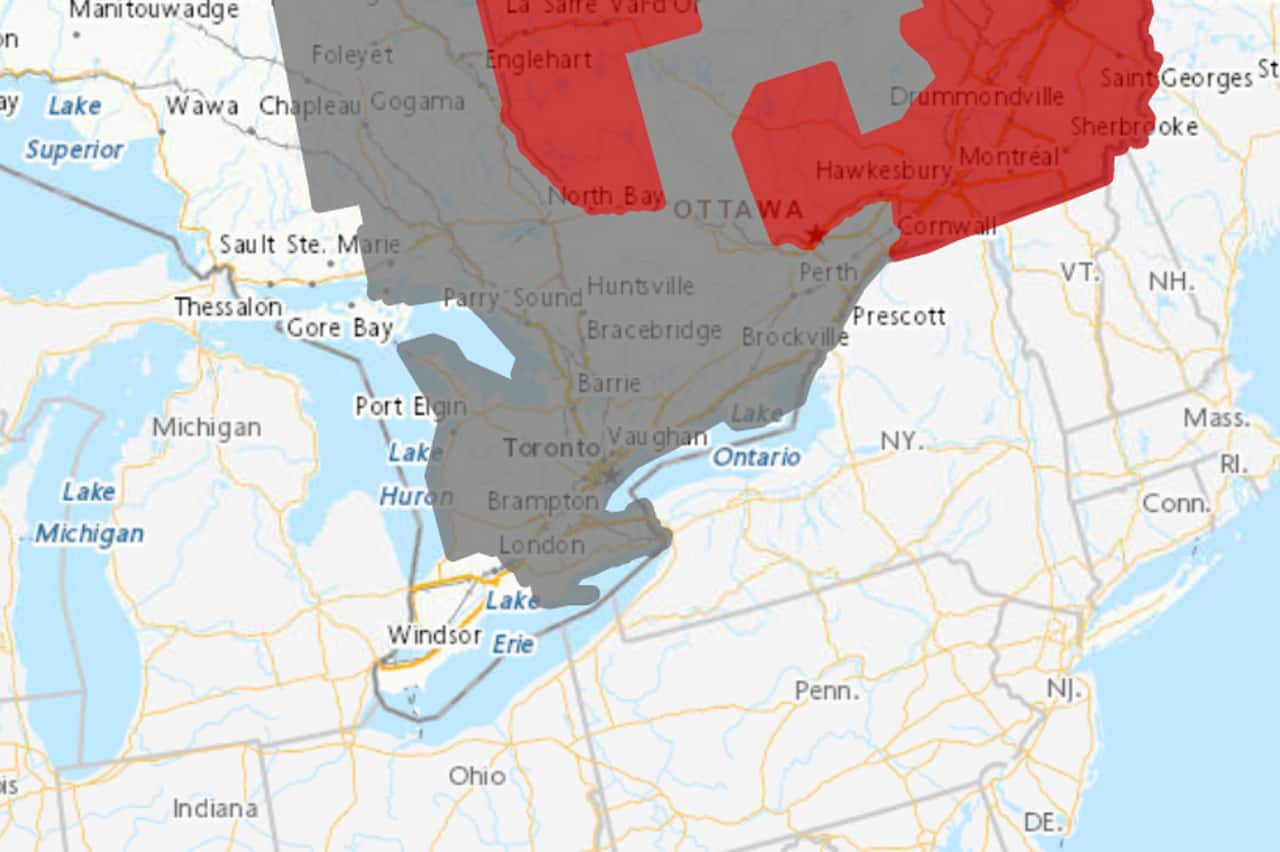Forest fire smoke prompts special air quality statement for Mississauga, Brampton, Hamilton and beyond
Published June 6, 2023 at 7:46 am

Environment Canada has issued an air quality statement for Mississauga, Brampton, Halton, Hamilton and much of southern Ontario.
Yesterday (June 5), a Environment Canada warned of poor air quality and reduced visibility due to forest fires in Quebec.
But today (June 6), Environment Canada issued an air quality statement for high levels of air pollution possible due to smoke from forest fires.
Smoke plumes from forest fires in Quebec may result in deteriorated air quality through most of this week in Mississauga, Hamilton, Brampton, Halton and much of southern Ontario, the statement notes.
“Air quality and visibility due to wildfire smoke can fluctuate over short distances and can vary considerably from hour to hour,” the statement reads.
There were 156 wildfires burning in northwestern Quebec prompting evacuations on the weekend.
Wildfire smoke can be harmful to everyone’s health even at low concentrations.
Environment Canada suggests people take actions, such as staying inside, to protect their health and reduce exposure to smoke.
In particular, people with lung disease (such as asthma) or heart disease, older adults, children, pregnant people, and people who work outdoors are at higher risk of experiencing health effects caused by wildfire smoke.
Stop outdoor activities and contact your health care provider if you or someone in your care experiences shortness of breath, wheezing (including asthma attacks), severe cough, dizziness or chest pains.

Keep your indoor air clean. Keep your doors and windows closed if the temperature in your home is comfortable. Use an air purifier with a High Efficiency Particulate Air (HEPA) filter in a room where you spend a lot of time. Avoid air purifiers that produce ozone. Check the filter and change it if required.
“Stay inside if you are feeling unwell and experiencing symptoms,” the statement continues.
People can take a break from the smoke by temporarily relocating or finding a location in their community with clean, cool air such as a library, shopping mall or community centre.
Contact local health or municipal authorities for more information.
If you must spend time outdoors, a well-fitted respirator-type mask (such as a NIOSH certified N95 or equivalent respirator) that does not allow air to pass through small openings between the mask and face, can help reduce exposure to the fine particles in smoke. These fine particles generally pose the greatest risk to health.
However, respirators do not reduce exposure to the gases in wildfire smoke.
“It is important to listen to your body and reduce or stop activities if you are experiencing symptoms.”
Environment Canada suggests residents check on people in their care and those around them who may be more susceptible to smoke.
“Pay attention to information and direction from your local authorities and evacuate if told to do so.”
People should also review their wildfire smoke plan and make sure there is enough medical supplies if the smoke continues to impact the community.
If you feel unwell, contact your health care provider. Also be aware of your mental health. It is normal to feel anxious or isolated during a smoke event.
If you experience any feelings of stress, anxiety, or depression, contact your mental health care provider for advice or visit https://www.wellnesstogether.ca/en-CA.
Visit www.airhealth.ca for information on how to reduce your health risk and your personal contribution to pollution levels, as well as for current and forecast air quality.
INsauga's Editorial Standards and Policies


